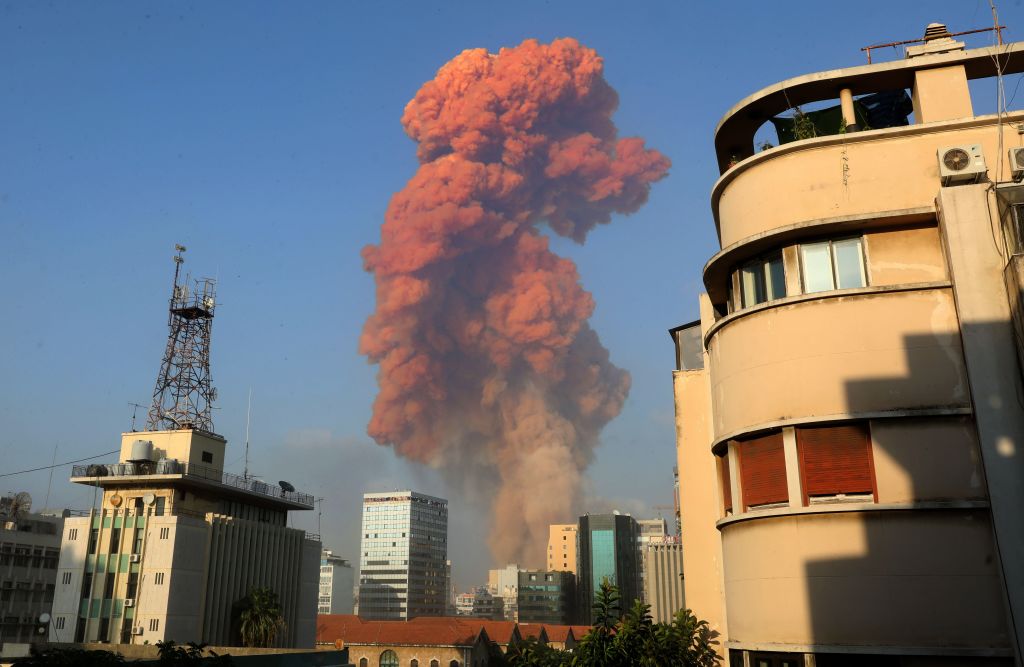Workers were trying to secure Beirut warehouse just hours before massive explosion


A free daily email with the biggest news stories of the day – and the best features from TheWeek.com
You are now subscribed
Your newsletter sign-up was successful
Workers were repairing a facility in Beirut, Lebanon's port on the afternoon of Aug. 4, hours before a massive explosion there rocked the area, destroying buildings and killing at least 180 people. A judge had recently ordered something be done to secure Warehouse Number 12 at the request of Lebanon's State Security agency.
The warehouse contained 2,750 tons of ammonium nitrate, and documents obtained by The Washington Post show that the highly explosive material was stored next to kerosene, 25 tons of fireworks, and solvents used for stripping paint. Ghassan Oueidat, Lebanon's chief prosecutor, told the Post the State Security agency was worried not about the dangers posed by the warehouse's contents, but rather someone stealing the materials. A report sent to the offices of Lebanon's president and prime minister in July warned that the ammonium nitrate was "dangerous" and "if it were stolen, the thief could use it to manufacture explosives."
The three workers sent to secure the warehouse fixed a broken door, closed a hole in a wall, and made sure all other doors were locked, the Post reports. But when a fire broke out at around 5:50 p.m. on Aug. 4, the workers had gone home for the day, and Beirut's fire chief said firefighters were unable to gain access to the warehouse or find any port employees who might have had keys. At 6:08 p.m., the warehouse blew up.
The Week
Escape your echo chamber. Get the facts behind the news, plus analysis from multiple perspectives.

Sign up for The Week's Free Newsletters
From our morning news briefing to a weekly Good News Newsletter, get the best of The Week delivered directly to your inbox.
From our morning news briefing to a weekly Good News Newsletter, get the best of The Week delivered directly to your inbox.
Investigators do not yet know what caused the initial fire or explosion that triggered the blast, but theories include welding sparks or arson to cover up a theft, the Post reports. This is just one of the unanswered questions authorities have, some dating back to when the ammonium nitrate arrived on a cargo ship that docked in Beirut in November 2013. They'd primarily like to know who originally owned the ammonium nitrate, where it was headed, and whether it was deliberately diverted to Beirut, where it was seized by authorities in December 2013.
The Post spoke with several people who do not have faith in the government and its ability to properly conduct an investigation. "There's not a chance in hell there will ever be accountability," one person with knowledge of the probe said. "A typical coverup is on the way."
A free daily email with the biggest news stories of the day – and the best features from TheWeek.com
Catherine Garcia has worked as a senior writer at The Week since 2014. Her writing and reporting have appeared in Entertainment Weekly, The New York Times, Wirecutter, NBC News and "The Book of Jezebel," among others. She's a graduate of the University of Redlands and the Columbia University Graduate School of Journalism.
